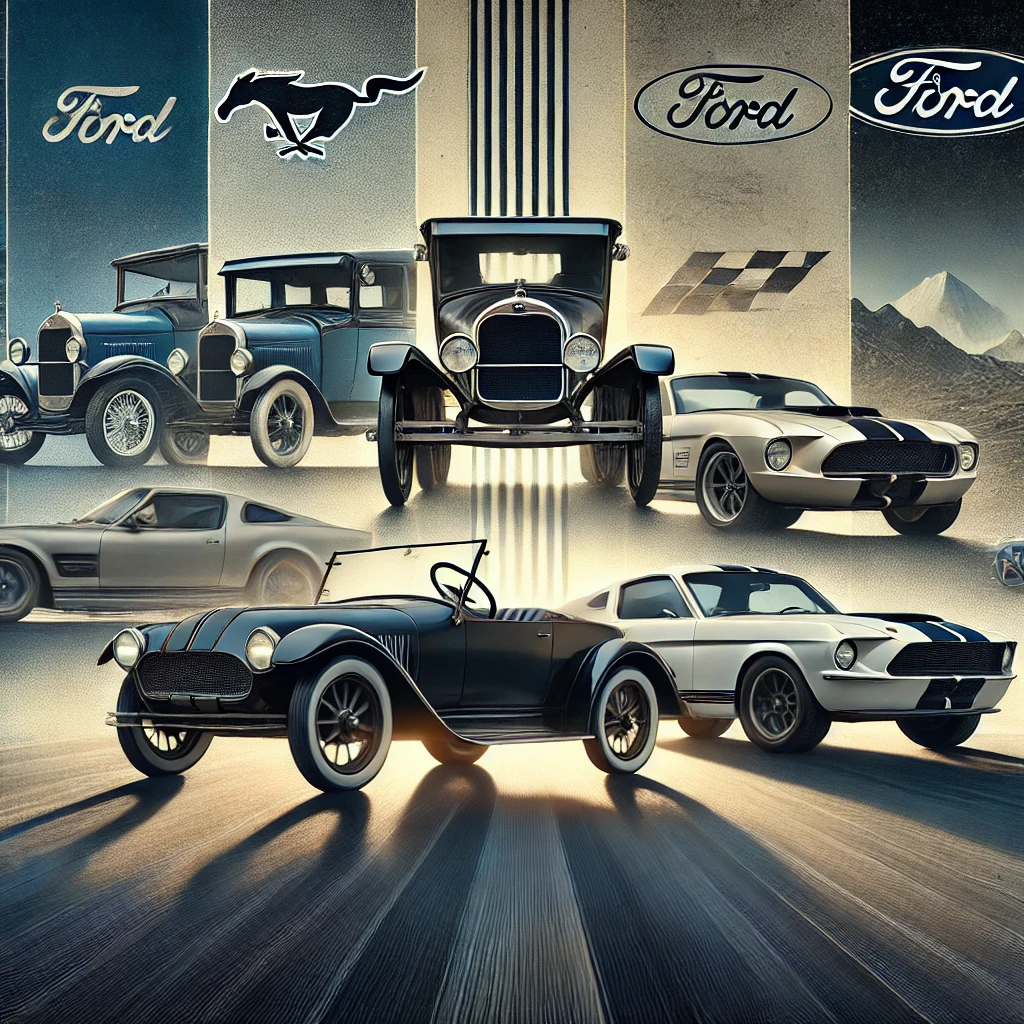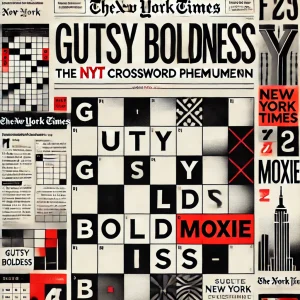Ford Motor Company has left an indelible mark on the automotive industry, shaping the way we think about cars and transportation for over a century.
From pioneering mass production techniques to creating iconic vehicles that capture the imagination of generations, Ford’s influence is undeniable.
This article explores some of the best classic Ford cars that continue to captivate collectors and enthusiasts alike, showcasing the innovation, performance, and timeless appeal that define these automotive legends.
The Ford Model T: The Car That Started It All
Introduction to the Model T
The Ford Model T, introduced in 1908, is often referred to as “the car that put America on wheels.” This revolutionary vehicle holds a special place in automotive history as the first mass-produced car, making personal transportation accessible to millions of Americans.
Why the Model T is Iconic
- Affordability and Accessibility: By implementing efficient production methods, Ford was able to reduce costs significantly, making the Model T affordable for the average American family.
- Assembly Line Production: Henry Ford’s introduction of the moving assembly line revolutionized manufacturing, not just in the automotive industry but across various sectors.
- Versatility: The Model T’s simple design and rugged construction made it suitable for various terrains and uses, from city streets to rural farmlands.
The Model T’s impact extended far beyond transportation, influencing American culture, economy, and way of life. Its legacy as the car that democratized automobile ownership ensures its place among the most important vehicles ever produced.
Ford Mustang: The Birth of the Pony Car
Overview of the Mustang’s Launch in 1964
The Ford Mustang, unveiled at the New York World’s Fair in 1964, created an entirely new category of American automobiles: the pony car. This sleek, sporty, and affordable vehicle captured the imagination of the public and quickly became a cultural icon.
Mustang’s Enduring Appeal
- Sleek Design: The Mustang’s long hood, short deck, and aggressive stance set a new standard for automotive aesthetics.
- Powerful Engine Options: From economical six-cylinders to roaring V8s, the Mustang offered performance options for every driver.
- Cultural Significance: Featured prominently in films, music, and popular culture, the Mustang became a symbol of American freedom and individuality.
The Mustang’s ability to evolve while maintaining its core identity has ensured its continued popularity. From the classic 1960s models to the modern reinterpretations, the Mustang remains a favorite among car enthusiasts and collectors.
Ford Thunderbird: Luxury and Performance Combined
Introduction to the Thunderbird (1955)
Introduced in 1955, the Ford Thunderbird was Ford’s answer to the Chevrolet Corvette. However, it quickly carved out its own niche as a personal luxury car, combining high-end features with impressive performance.
Key Features of the Thunderbird
- Luxury Appointments: The Thunderbird offered a level of comfort and sophistication not typically found in sports cars of the era.
- V8 Engine Performance: Powerful V8 engines ensured the Thunderbird had the muscle to match its luxurious image.
- Distinctive Styling: From the original two-seater to later four-seat models, the Thunderbird always stood out with its unique design elements.
The Thunderbird’s impact on the “personal luxury car” market was significant, influencing competitors and setting trends that would define American automotive luxury for decades.
Ford GT40: A Racing Legend
The GT40’s Role in Motorsport
Developed specifically to compete at the 24 Hours of Le Mans, the Ford GT40 represents one of the most ambitious projects in motorsport history. Born from Henry Ford II’s desire to beat Ferrari at Le Mans, the GT40 became a symbol of American engineering prowess.
GT40’s Racing Prowess
- Le Mans Dominance: The GT40 achieved four consecutive wins at Le Mans from 1966 to 1969, ending Ferrari’s reign and cementing its place in racing history.
- Technological Innovation: The GT40 pushed the boundaries of aerodynamics, engine technology, and lightweight construction.
- Enduring Legacy: The GT40’s success story continues to inspire, leading to modern reinterpretations like the Ford GT.
The GT40’s combination of stunning looks and racing pedigree make it one of the most desirable classic Ford cars among collectors and enthusiasts.
Ford F-100: The Classic Pickup
Introduction to the F-100 Series
The Ford F-100, part of the F-Series line of trucks, represents the evolution of the American pickup truck from a purely utilitarian vehicle to a versatile and stylish option for both work and leisure.
Why the F-100 is a Classic
- Durability: Built to withstand the rigors of daily work, many F-100s have survived decades of use.
- Versatility: Equally at home on a construction site or a car show, the F-100 appeals to a wide range of enthusiasts.
- Customization Potential: The F-100’s simple design and abundant aftermarket support make it a favorite among custom truck builders.
The F-100’s enduring popularity reflects its importance in American automotive culture and its role in establishing Ford’s dominance in the pickup truck market.
Restoring and Preserving Classic Ford Cars
Restoring a classic Ford car can be a rewarding experience, allowing enthusiasts to connect with automotive history hands-on. Here are some key considerations:
Restoration Tips
- Sourcing Original Parts: Utilize specialty suppliers, swap meets, and online marketplaces to find authentic components.
- Documenting the Process: Keep detailed records and photos of your restoration project for future reference and to enhance the vehicle’s value.
- Seeking Expert Advice: Join Ford enthusiast forums and consult with experienced restorers to overcome challenges.
Maintaining Authenticity
- Research Original Specifications: Use factory manuals and period literature to ensure accuracy in your restoration.
- Balancing Originality and Usability: Consider carefully before making modifications that deviate from the original design, as this can affect the car’s value and historical significance.
Preserving these classic Fords not only maintains their value but also helps keep automotive history alive for future generations.
Why Collect Classic Ford Cars?
Collecting classic Ford cars offers numerous benefits beyond the joy of ownership:
Investment Potential
- Appreciating Assets: Well-maintained, rare models often increase in value over time.
- Market Trends: Understanding market dynamics can help collectors make informed decisions about which models to acquire.
Nostalgia and Historical Significance
- Connecting with History: Owning a classic Ford allows you to experience a piece of automotive and cultural history firsthand.
- Preserving Legacy: Collectors play a crucial role in maintaining these important vehicles for future generations.
Whether driven by passion, investment potential, or both, collecting classic Ford cars offers a unique and rewarding experience.
Joining the Classic Car Community
Becoming part of the classic Ford community can enhance your experience as an owner or enthusiast:
Benefits of Joining Car Clubs
- Access to Resources: Car clubs often provide access to technical information, repair manuals, and expert advice.
- Social Connections: Meet like-minded enthusiasts and build friendships around your shared passion.
- Group Events: Participate in club-organized drives, shows, and other events.
Attending Classic Car Shows and Events
- Showcasing Your Vehicle: Display your classic Ford and share its story with other enthusiasts.
- Networking Opportunities: Connect with parts suppliers, restoration experts, and potential buyers or sellers.
- Learning Experiences: Gain insights from judging events and educational seminars often held at major shows.
Engaging with the classic car community can provide support, inspiration, and a sense of belonging for Ford enthusiasts.
Conclusion
The best classic Ford cars represent more than just modes of transportation; they are icons of innovation, performance, and American ingenuity. From the revolutionary Model T to the race-winning GT40, each vehicle discussed has played a significant role in shaping automotive history and culture.
These classic Fords continue to captivate enthusiasts and collectors due to their timeless designs, historical significance, and the stories they tell about America’s automotive heritage. Whether you’re drawn to the raw power of a Mustang, the luxury of a Thunderbird, or the utility of an F-100, there’s a classic Ford that speaks to every automotive passion.
As we look to the future of automobiles, with electric vehicles and autonomous driving on the horizon, the enduring appeal of these classic Fords reminds us of the innovation, craftsmanship, and spirit that have always driven the automotive industry forward. By preserving and celebrating these iconic vehicles, we maintain a tangible connection to our automotive past while inspiring future generations of car enthusiasts.
FAQ
Q: What makes a Ford car “classic”? A: Generally, cars over 25 years old are considered classics. However, factors like historical significance, rarity, and cultural impact also contribute to a car’s classic status.
Q: Are classic Ford cars expensive to maintain? A: Maintenance costs can vary widely depending on the model, condition, and availability of parts. Some models have good parts availability, making maintenance more affordable, while rare models might be more expensive to maintain.
Q: Can I use a classic Ford as a daily driver? A: While possible, using a classic car daily can be challenging due to reliability issues, lack of modern safety features, and potential wear and tear. Many owners prefer to use their classic Fords for occasional driving and special events.
Q: How do I determine the value of a classic Ford? A: Factors like condition, rarity, originality, and market demand affect value. Consult price guides, auction results, and expert appraisals for accurate valuations.
Q: Are there any tax benefits to owning a classic Ford? A: Some regions offer tax benefits for classic car ownership, such as reduced registration fees or exemptions from certain vehicle taxes. Check with local authorities for specific regulations in your area.





0 thoughts on “The Best Classic Ford Cars: Icons of Innovation and Performance”